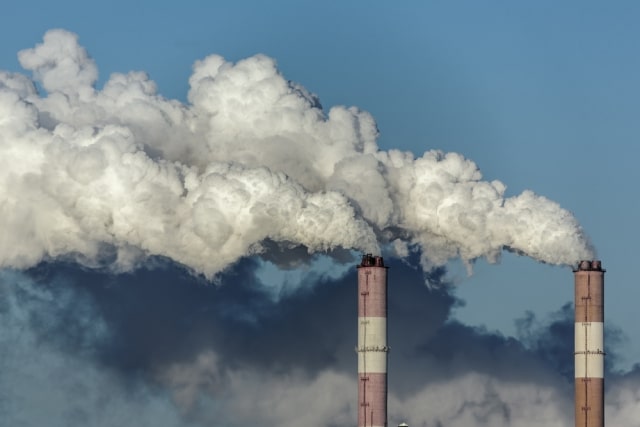Atmospheric carbon dioxide emissions, the main contributor to global warming, are set to rise again in 2014 – reaching a record high of 40 billion tonnes, according to a new report.
The latest annual update of the Global Carbon Budget (GCB) shows that the projected rise of 2.5 per cent in burning fossil fuels and cement production this year follows a 2.3 per cent increase in 2013, a then record high of 36 billion tonnes.
The GCB said the 2013 emissions were the highest in human history and 61 per cent higher than in 1990 (the Kyoto Protocol reference year). In 2013, the GCB added, coal burning was responsible for 43 per cent of the total emissions, oil 33 per cent, gas 18 per cent and cement 5.5 per cent.
Global CO2 emissions were dominated last year by China (28 per cent), the U.S. (14 per cent), the 28-member European Union (10 per cent) and India (seven per cent), the GCB said.
China’s CO2 emissions grew by 4.2 per cent in 2013, the U.S.’s grew by 2.9 per cent, and India’s grew by 5.1 per cent, data shows, while European Union emissions decreased by 1.8 per cent.
Deforestation and other land use changes accounted for eight per cent of CO2 emissions.
The emissions growth for 2014 brings the cumulative emissions of CO2 to a record high of 2,000 billion tonnes of CO2 since 1870, according to the Global Carbon Project update.
The GCB was also published as a discussion paper in the open access journal Earth System Science Data which noted that the remaining CO2 emission “quota” may be used up in one generation, and at least half of all fossil fuel reserves may need to be left untapped.
The journal added that in a companion paper published in Nature Geoscience based on these findings, Pierre Friedlingstein and colleagues reveal that total future CO2 emissions cannot exceed 1,200 billion tonnes – for a likely chance (66 per cent) of keeping average global warming under 2°C (since pre-industrial times).
“At the current rate of CO2 emissions, this ‘quota’ would be used up in around 30 years,” the journal said.
“This means that there is just one generation before the safeguards to a 2°C limit may be breached. The international team of climate scientists says that to avoid this, more than half of all fossil fuel reserves may need to be left untapped.”
The annual update was led by Corinne Le Quéré, director of the Tyndall Centre at the University of East Anglia, with 59 co-authors from 10 countries and 49 institutions.
Le Quéré was reported as saying the human influence on climate change is clear.
“We need to act fast to rapidly reduce CO2 emissions from burning fossil fuels if we are to limit global climate change,” she said.
“We are nowhere near the commitments necessary to stay below 2°C of climate change, a level that will be already challenging to manage for most countries around the world, even for rich nations.”
The update was published last Sunday, two days before the UN Climate Summit in New York where politicians discussed their nation’s intentions towards fighting climate change and working towards a new international emissions-reduction agreement in Paris in 2015.
A sampling of their comments can be read here.
Image credit: Smokestack pollution via Shutterstock.
Subscribe to our newsletter
Stay up to date with DeSmog news and alerts







